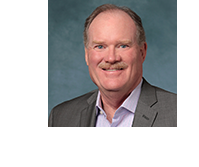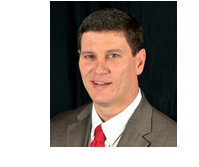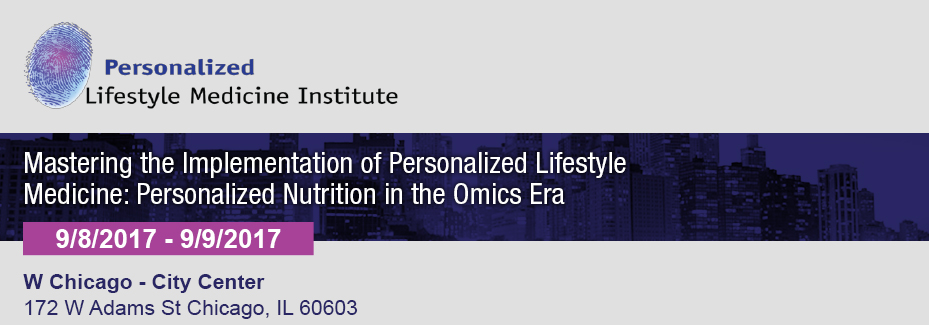Functional medicine can sometimes clash with the broader healthcare industry, which focuses on treating specific systems or diseases. In functional medicine, practitioners offer a more holistic and preventative approach to care, often recommending lifestyle, diet, and nutritional supplements. However, the norms of pharmaceutical research don’t necessarily translate into effective supplement research. Moreover, nutritional supplements often fall into gray areas in drug regulation, making the safe and effective use of supplements difficult for many functional medicine clinicians.
Despite these obstacles, the frontiers of medical research into chronic conditions is pushing mainstream healthcare closer to the holistic approach of functional medicine. Doctors are beginning to accept that obesity, diabetes, and heart disease often develop from a system-wide breakdown of health, not a cause that can be cured with a pill.
Jeffrey Bland, Ph.D., co-founder of the Institute for Functional Medicine, and Thomas G. Guilliams, Ph.D., explain how advances in cardiovascular research have left functional medicine facing cultural obstacles, but has also created exciting opportunities for future treatments.
How Supplements Fit Into Drug-Based Medicine
After decades of being encouraged to take daily vitamins, Americans are now hearing that supplements are a complete waste of money. A medical advice reversal is nothing new. So, when
complex scientific findings are reduced to a sound bite on the evening news, it’s best to take a step back and see where the research behind the news originated.
The folly in testing supplements as drugs
A few years ago, the Annals of Internal Medicine published three separate papers that shut down the notion of using vitamin and mineral supplements to treat health conditions. But a closer
look at these papers shows evidence that vitamin and mineral supplements worked very well in some of the cohorts within the studies.
In response to these three papers, Dr. Guilliams wrote a rebuttal commentary, The Case is Closed: Editorial Bias Prevents Reasonable Evaluation of Dietary Supplements, which exposed several flaws in the studies. One major discrepancy was the attempt to look for drug-like outcomes in dietary supplements. If researchers test supplements like drugs, which they are not, then the model will show that the supplements don’t work. At the same time, it’s common in medical literature to see studies that don’t isolate the supplements they are testing, which would not happen in a clinical trial of a drug. In fact, many of the patients in these trials of supplements are on upwards of eight or 10 other drugs, which could obscure any effect the supplements have.
Evidence-based medicine is now turning into what could be called medicine-based evidence. Researchers think they’re looking at scientifically-determined evidence, but what the research norms have really done is allow the pharmaceutical companies to determine which biomarkers to measure, which endpoints are meaningful, and which values should be considered meaningful.
The timeframe for efficacy in these trials is also determined by expectations for drugs. A drug typically must work within six to 12 weeks to be considered effective. Yet, a few weeks is a short period of time to measure the effectiveness of compounds in supplements, which are known to have subtle effects at the genomic and epigenetic levels over long periods of time.
Unfortunately, problems with accurate supplement testing extend beyond efficacy and into quality control. For several economic and regulatory reasons, clinicians may have trouble finding supplements that are safe and that have effective levels of the compounds they advertise.
A large proportion of supplements recalled by the U.S. Food and Drug Administration are pulled because they are adulterated with pharmaceutical ingredients. In 2014, an article published in the Journal of the American Medical Association (JAMA) revisited 274 products that were recalled by the Food and Drug Administration (FDA) due to adulteration by a drug, and looked for evidence that the products were still being sold.
The study authors found 27 of the original 274 products for sale, and tested them for purity. Of the 27 products, 18 were still tainted and adulterated with pharmaceutical ingredients. Yet, news coverage of the JAMA article stated, “more than half of the tainted supplements were still available for purchase,” according to a Reuters article published in 2014. A second look at those numbers proves more than 93% of the recalled products were either unavailable, or unadulterated.
Maintaining trust in supplements
Clinicians who want to use or recommend supplements to their patients should take several steps to help ensure the safety and efficacy of these products. First, it’s best to avoid purchasing
products from companies without an established reputation for quality. Keep in mind that products marketed to treat certain health concerns are especially prone to contamination. Weight-loss products, sexual enhancement products, sports performance
or body-building products, and products that promise to help mood or depression are more likely to be adulterated than other supplements. Finally, pay attention to the source of the products. Contaminated products are very commonly purchased online.
Most of these dangerous products are not truly dietary supplements, but unapproved or undisclosed drugs masquerading as dietary supplements. The FDA has done quite a bit to remove tainted dietary supplements over the years, and some non-profit organizations have also stepped up to the quality control problem to investigate adulteration of botanicals. But, clinicians who want to promote remedies that are different from guideline recommendations should be sure to stay informed about the latest literature on those remedies, including studies with both negative and positive results. Stay up to date with the nuances of the regulatory environment of the dietary supplement industry, including rules about over-the-counter (OTC) products and compounding.
Clinicians who want to recommend or promote supplements should always be able and willing to report serious adverse events they encounter through FDA’s MedWatch to help protect the public. And finally, clinicians should be honest about the fact that a small minority of companies will try take advantage of the uninformed population by selling tainted or ineffective products.
Gray areas in supplement classification
Supplements occupy an odd place in the larger food and drug regulatory environment as neither a food, nor a drug. While the supplement market largely delivers safe products to the public,
some regulations may inadvertently make it supplements less safe or less effective.
Red yeast rice has long been used as a dye in East Asian cuisine, but it is widely known today as a popular nutritional supplement meant to lower cholesterol. Research on red yeast rice has found it naturally contains a compound called monacolin K, which has the same structure as the FDA-approved drug lovastatin. In 1987, lovastatin became the first FDA-approved drug for lowering cholesterol. About 10 years later, the FDA stopped the shipment of red yeast rice that was destined for a supplement product called Cholestin because it tested higher than trace levels of the monacolin K/lovastatin molecule.
Monacolin K is a natural fermentation product of a number of fungal and yeast species. Like red yeast rice, lovastatin is produced through fermentation. However, the FDA is clear that any product with lovastatin/monacolin K, declared or undeclared, above “natural, food-grade” levels will be considered an unapproved drug and pulled. Lawsuits over Cholestin ensued, and in response, other red yeast rice supplement manufacturers stopped testing their products for monacolin K. Manufacturers reasoned that testing red yeast rice would leave a paper trail of monacolin K content, and if the manufacturers didn’t know how much monacolin K was in their product, they would be less likely to get into trouble with the FDA.
This don’t-ask-don’t tell mentality has since created a frustrating problem with quality control. A paper published in 2001 investigating a sample of red yeast rice products found most capsules contained 2 to 3 milligrams of monacolin K. By 2010, a similar test across eight different red yeast rice products found a much wider range of monacolin K per capsule, from as little as 0.1 milligrams up to 10 milligrams, roughly equivalent to a low dose of lovastatin. In 2014, researchers with the University of Michigan ran another test of products containing 600 milligrams of red yeast rice. This study found concentrations of monacolin K varied by more than 40-fold from 0.02 milligrams to 2.18 milligrams.
In 2016, a lab associated with Dr. Guilliams analyzed four red yeast rice products sold through physician channel companies. They found an extreme variation in monacolin K concentrations ranging from 0.0 milligrams to 2.9 milligrams. The products on the low spectrum of monacolin K concentration would pass under the FDA guidelines, but would have limited efficacy. The products with the higher concentrations would likely be considered as unapproved drugs by the FDA. Red yeast rice products are regulated in a way that companies can’t test for active compounds in their products, and therefore they can’t disclose what’s in the product, and they can’t even set specifications for those products. This regulatory grey area makes it impossible for a clinician to assume the level of active ingredients in these supplements from one package to the next.
Thankfully for clinicians, there is a plethora of ways to attack the cardiovascular event model, and low-dose statin therapy is one of these ways. The example of red yeast rice is just one more reason why clinicians need to seek out regulatory news, and familiarize themselves with other avenues to treat patients, including lifestyle interventions and nutrients, vitamins, and minerals that are not only effective, but legal.
Read Part 2 of New Clinical Options for Expanding the Therapeutic Target!
 | About Jeffrey Bland, Ph.D., FACN, CNS Jeffrey Bland is a biochemist by training, as well as a certified nutrition specialist and fellow of both the American College of Nutrition and the Association for Clinical Biochemistry. Bland served as director of nutritional research at the Linus Pauling Institute of Science and Medicine in the early 1980s, where he worked directly with Nobel laureate Dr. Linus Pauling. For more than 35 years, Bland has traveled the world teaching more than 100,000 healthcare practitioners about functional medicine. He co-founded of the Institute for Functional Medicine in 1991, and has authored several books about nutritional medicine for expert and lay audiences. In 2012, Bland founded the Personalized Lifestyle Medicine Institute (PLMI), a nonprofit organization based in Seattle, Washington, where he continues to serve as President. He is also president and CEO of KinDex Therapeutics. | |
 | About Thomas G. Guilliams, Ph.D. Dr. Guilliams earned his doctorate from the Medical College of Wisconsin (Milwaukee) where he studied molecular immunology in the Microbiology Department. Since 1996, he has spent his time studying the mechanisms and actions of natural-based therapies, and is an expert in the therapeutic uses of nutritional supplements. As the Vice President of Scientific Affairs for Ortho Molecular Products, he has developed a wide array of products and programs which allow clinicians to use nutritional supplements and lifestyle interventions as safe, evidence-based and effective tools for a variety of patients. Tom teaches at the University of Wisconsin-School of Pharmacy, where he holds an appointment as a Clinical Instructor; at the University of Minnesota School of Pharmacy and is a faculty member of the Fellowship in Anti-aging Regenerative and Functional Medicine. He lives outside of Stevens Point, Wisconsin with his wife and children. | |
Join Dr. Bland and Dr. Guilliams at the upcoming Mastering the Implementation of Personalized Lifestyle Medicine Conference!
 |
 |




